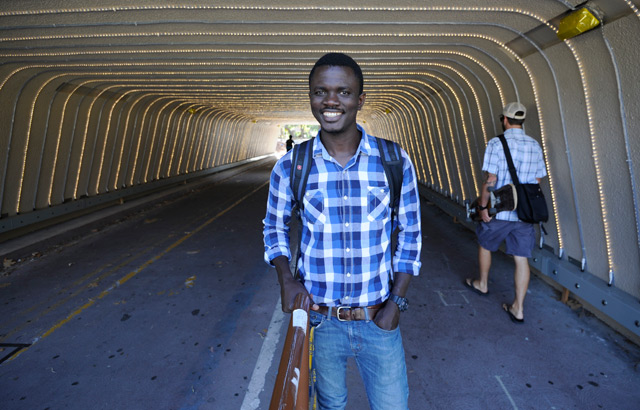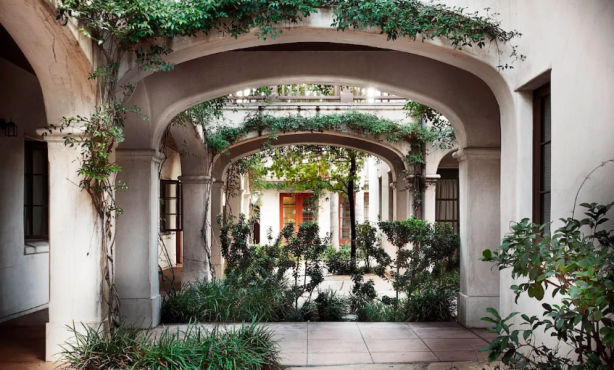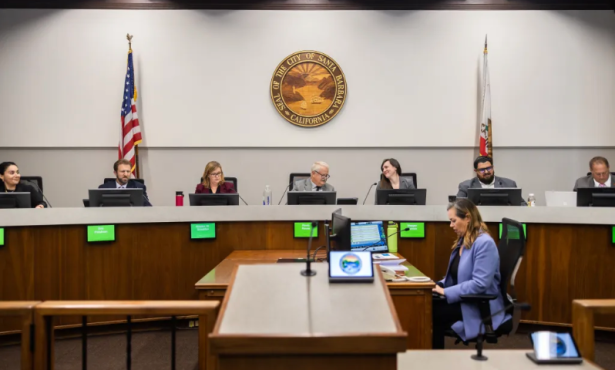Presidential Election in Gambia Holds Hope
UCSB Student's Uncle's Ouster Could Relieve Oppression

Last Friday, UCSB international student Alagie Jammeh expressed optimism that Gambia could begin to shed elements of its oppressive past after its longtime authoritarian president was unexpectedly defeated by a political outsider. For Jammeh, the news carries a personal connotation: The outgoing president, Yahya Jammeh, is his uncle.
“I never thought a day like this [would come],” he said in an interview on Friday. Historically, elections have been merely symbolic and lacked transparency, he said. “I don’t know why this time is a different outcome. It’s kind of blown my mind away.”
Jammeh, who studies international relations, was granted asylum in the United States earlier this year after the Gambian government demanded he apologize for publicly supporting the LGBTQ community in a Facebook post. He refused to do so, and government officials revoked his scholarship. If he returned home, he feared for his safety. Likewise, his mother fled to Senegal.
The BBC reported President Jammeh has called homosexuals “vermin” and said the “government would deal with them as it would malaria-carrying mosquitos.”
Alagie Jammeh explained that if “you write something [controversial] on Facebook … the next day you will find yourself in prison.”
Gambian government officials expected the university student to return home enlightened by American ways. “My uncle believed in me,” Jammeh said. But challenging the country’s longstanding oppression of gay people was apparently not what President Jammeh had in mind. Most of his family has renounced Alagie.
The day of the election happened to be the day Jammeh was honored at The Santa Barbara Independent’s Local Heroes luncheon. He explained that as a kid he was taught that homosexuality is “against nature,” “bad,” and “mean.” Before he arrived at UCSB, he had only once seen people who were openly gay. He saw the arrest of two European men who were holding hands. They were ordered to leave the country, he said.
“If that’s how you grow up, you accept everything your elders tell you,” he said. “I didn’t have the freedom to say, ‘Maybe this is not right. Maybe I should think about this and form my own opinion.’ If you do that, people are going to see you as bad person or radical.”
But his attitude eventually changed at UCSB, where he discovered that his good friend was gay. “No, you can’t be gay,” he recalled saying in disbelief. “You are one of my best friends!”
Eventually, he became somewhat of an activist, and after he takes his last final exams this week, he hopes to go into advocacy work, fighting on behalf of all oppressed peoples.
Although Jammeh does not know exactly what to make of the election results, he expressed excitement. He said he is “10,000 percent behind” Adama Barrow, the president-elect, though he admitted he does not know much about him.
He does know Barrow worked as a security guard in London while studying for a real estate license. After Barrow returned to Gambia, a number of small political opposition groups formed a coalition to challenge the president, Jammeh explained. Barrow got quickly involved in politics and was appointed to be their representative. “The Gambian people have been suffering a lot,” he said. “I am optimistic.”
Jammeh said he would continue to speak out against the new government if violations of human rights persisted. Asked about the potential for his mother to return to Gambia, Jammeh could not say with certainty. There are many unknowns.
“It is not just about the government,” Jammeh continued. “It is about the society. [If I were to] go back in the society right now, I don’t think people will respect me. I will be stigmatized.”
He said he would continue to monitor the situation closely. “The Gambia is an amazing culture,” he said. “But there are certain things that need reform, that need to change.”



